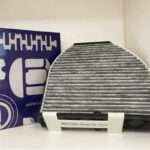What Type of Gas Does Mercedes-Benz Use? A Complete Guide
Mercedes-Benz is synonymous with luxury, performance, and engineering excellence. But when it comes to fueling these high-performance vehicles, many owners wonder: What type of gas does Mercedes-Benz use? The answer isn’t as straightforward as you might think, as it depends on the model, engine type, and regional fuel standards. In this comprehensive guide, we’ll explore everything you need to know about fueling your Mercedes-Benz, including the recommended gas type, why it matters, and tips for optimizing performance and efficiency.
Why Does the Right Gas Matter for Your Mercedes-Benz?
Using the correct type of gas is crucial for maintaining your Mercedes-Benz’s performance, efficiency, and longevity. Here’s why:
- Engine Performance: High-quality fuel ensures optimal combustion, delivering the power and responsiveness Mercedes-Benz is known for.
- Fuel Efficiency: The right gas type maximizes mileage, saving you money at the pump.
- Engine Longevity: Premium fuel reduces carbon buildup and wear, extending the life of your engine.
- Warranty Compliance: Using the recommended fuel type ensures you don’t void your vehicle’s warranty.
What Type of Gas Does Mercedes-Benz Recommend?
Mercedes-Benz recommends using premium unleaded gasoline with an octane rating of 91 or higher for most of its models. This is because Mercedes-Benz engines are designed for high performance and require fuel that can withstand higher compression ratios without causing knocking or pinging.
Here’s a breakdown of the fuel requirements for different Mercedes-Benz models:
| Model Type | Recommended Fuel | Octane Rating |
|---|---|---|
| Sedans (C-Class, E-Class, S-Class) | Premium Unleaded Gasoline | 91 or higher |
| SUVs (GLC, GLE, GLS) | Premium Unleaded Gasoline | 91 or higher |
| AMG Performance Models | Premium Unleaded Gasoline | 93 or higher |
| Diesel Models (OM Diesel Engines) | Ultra-Low Sulfur Diesel (ULSD) | N/A |
Can You Use Regular Gas in a Mercedes-Benz?
While some Mercedes-Benz models can technically run on regular unleaded gasoline (87 octane), it’s not recommended. Here’s why:
- Reduced Performance: Lower octane fuel can cause knocking, reducing engine power and responsiveness.
- Increased Wear: Regular gas may lead to carbon deposits and engine wear over time.
- Risk of Damage: Prolonged use of low-octane fuel can damage high-performance engines.
If you occasionally use regular gas, your vehicle’s engine control unit (ECU) may adjust to prevent knocking, but this can still impact performance and efficiency.
What About Diesel Mercedes-Benz Models?
Mercedes-Benz offers several diesel models, particularly in their SUVs and larger sedans. These vehicles require Ultra-Low Sulfur Diesel (ULSD) fuel. Diesel engines are known for their torque and fuel efficiency, making them ideal for long-distance driving and towing.
Does Mercedes-Benz Use Ethanol-Blended Fuel?
Most modern Mercedes-Benz models can safely use gasoline blended with up to 10% ethanol (E10). However, higher ethanol blends (like E15 or E85) are not recommended unless your vehicle is specifically designed for flex-fuel use. Ethanol can affect fuel efficiency and may cause issues in non-flex-fuel engines.
Top 5 Tips for Fueling Your Mercedes-Benz
To keep your Mercedes-Benz running smoothly, follow these fueling tips:
- Always Use Premium Gas: Stick to 91 octane or higher for optimal performance.
- Choose Top-Tier Gas Stations: These stations sell fuel with added detergents that keep your engine clean.
- Avoid Ethanol Blends Over E10: Unless your vehicle is flex-fuel, limit ethanol content to 10%.
- Don’t Top Off the Tank: Overfilling can damage the evaporative emissions system.
- Monitor Fuel Efficiency: Track your mileage to spot any issues early.
Frequently Asked Questions (FAQs)
1. What happens if I use regular gas in my Mercedes-Benz?
Using regular gas can cause knocking, reduced performance, and long-term engine damage. Always use premium fuel unless specified otherwise.
2. Can I use E85 fuel in my Mercedes-Benz?
Only flex-fuel vehicles can use E85. Most Mercedes-Benz models are not flex-fuel compatible.
3. How do I know if my Mercedes-Benz requires diesel?
Check your owner’s manual or the fuel door for labeling. Diesel models are typically labeled “BlueTEC” or “diesel.”
4. Does using premium gas improve fuel economy?
Yes, premium gas can improve combustion efficiency, leading to better mileage in high-performance engines.
5. Are there any additives I should use?
Mercedes-Benz does not recommend fuel additives. Stick to high-quality fuel from reputable stations.
Conclusion
Choosing the right type of gas for your Mercedes-Benz is essential for maintaining its performance, efficiency, and longevity. Most models require premium unleaded gasoline with an octane rating of 91 or higher, while diesel models need Ultra-Low Sulfur Diesel (ULSD). By following the manufacturer’s recommendations and adopting good fueling practices, you can ensure your Mercedes-Benz continues to deliver the luxury and performance you expect.
Whether you’re driving a sleek sedan, a powerful SUV, or a high-performance AMG model, the right fuel will keep your Mercedes-Benz running at its best. So, next time you’re at the pump, remember: premium fuel for premium performance!
Key Takeaways
- Mercedes-Benz recommends premium unleaded gasoline (91+ octane) for most models.
- Diesel models require Ultra-Low Sulfur Diesel (ULSD).
- Avoid using regular gas or high-ethanol blends unless specified.
- Follow fueling best practices to maintain performance and efficiency.








